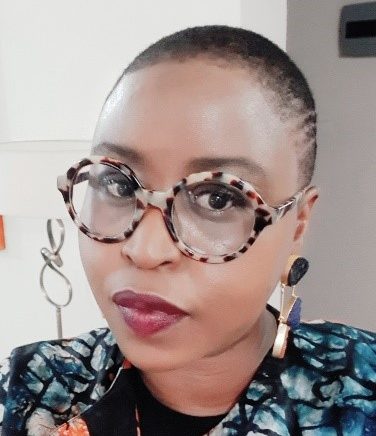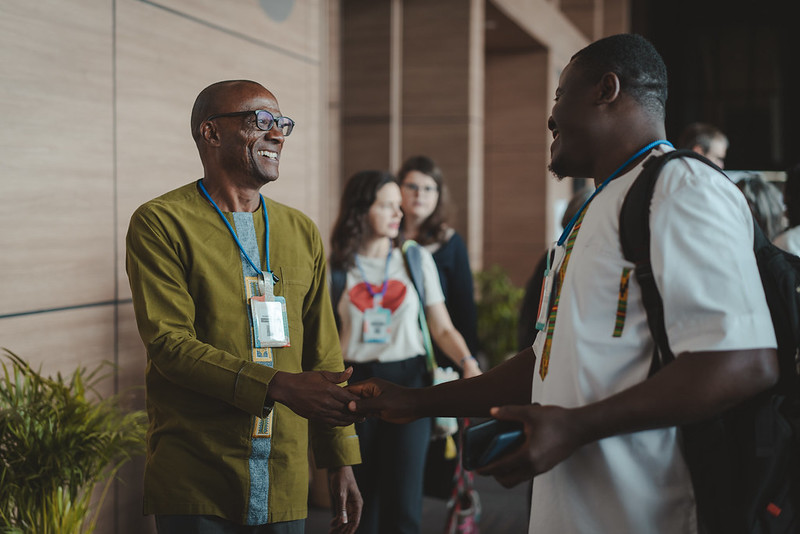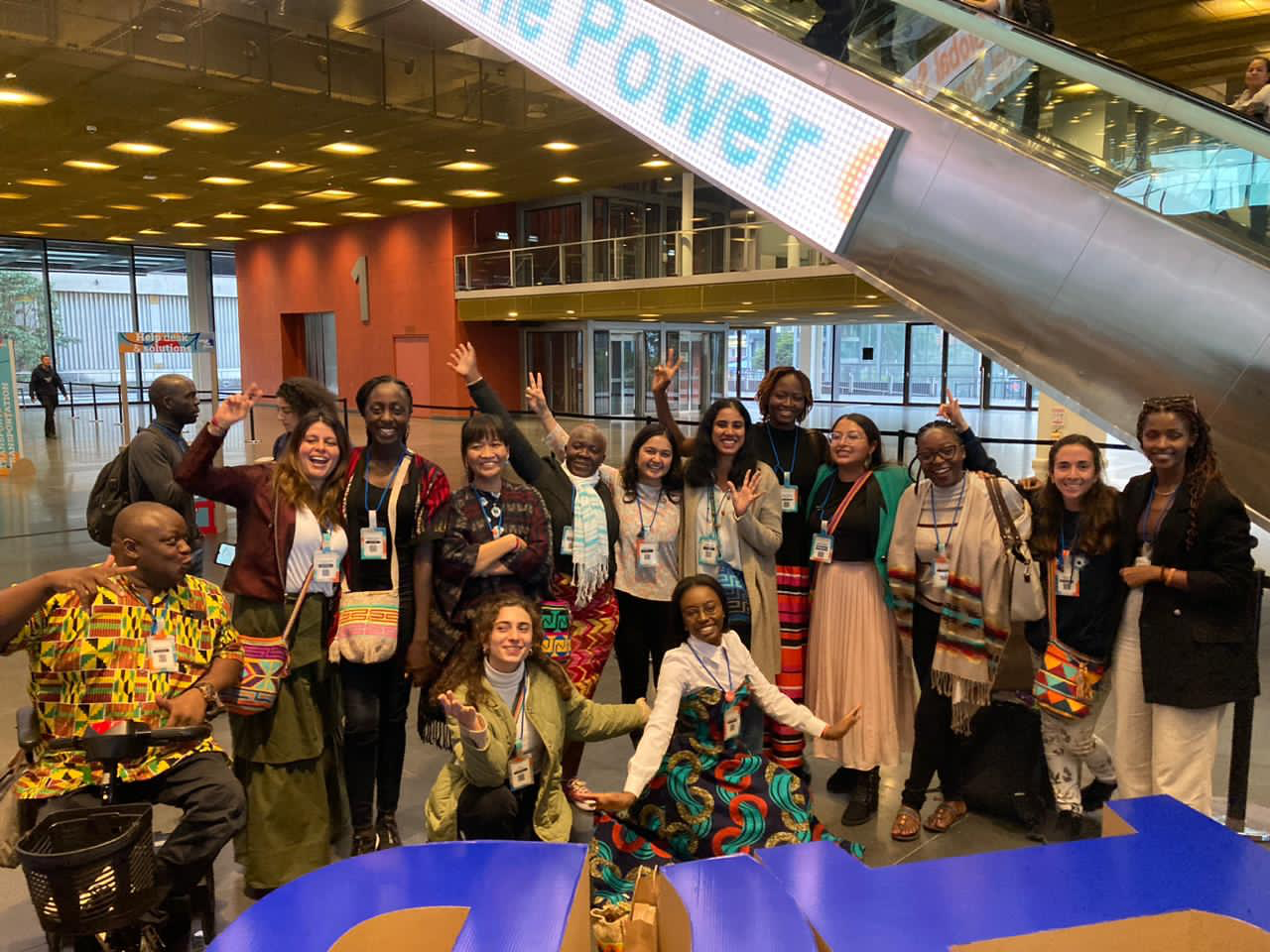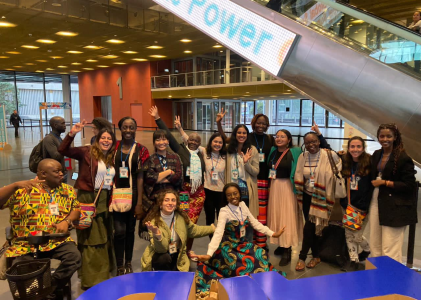
At the Global Fund for Community Foundations (GFCF), the #ShiftThePower Fellowship idea started with several questions: How can we discuss and reflect on issues of power? How might we create spaces for connecting, bridging and bonding, to deepen and expand the #ShiftThePower movement in terms of social and relational capital? And, in the process, how do we strengthen the collective weave between change-makers around the world? We had previously spent much of 2021 working with our partners and allies in the #ShiftThePower global movement to map relationships and interconnections between organizations on the #ShiftThePower Pando map. The map consisted of more than 500 organizations and nearly 1,000 relationships. Our learning from this was about the importance of relationships and in creating a sense of a bigger “us” in the #ShiftThePower movement. And so, the idea of the #ShiftThePower Fellowship was born.
While the issues to discuss may be complex, the call was simple. We were looking for individuals who were already engaged in emergent practice (testing community philanthropy or using participatory process in their day-to-day work, for example), and who were curious to understand more about systems and to connect with like-minded peers around the world. Particularly with those with whom they might not normally cross paths with. The Fellowship is an experiment in operationalizing and harmonizing relational power – between individuals – especially in parts of the ecosystem that are often overlooked.

Moving from theory to practice
The Fellowship had a light-touch approach, a more human-centred way to build connections between people and organizations. We had some ideas and expectations of what Fellows might want to focus their fellowship on, but the light-touch approach was also a signal that the Fellowship would be about creativity and co-creating. We had a broad “ask” of the Fellows. It was for them to engage, write, reflect, and explore with one another on alternative approaches on how change happens in development. The “offer” from the GFCF was to provide access to platforms, networks, resources and time.
The Fellowship gave us the autonomy to decide how best to define fellowship actions and create change. The flexible nature of the fellowship has helped me a lot in enabling me to conduct actions as my schedule allows and the themes most relevant to my work – Nish Kharal, 2023 #ShiftThePower Fellow
The first two cohorts of the #ShiftThePower Fellowship started with simply creating space, for questioning, learning, unlearning, and for aligning challenges in movement building. For understanding power dynamics and each other’s personal and professional relationship to it, and in building a common narrative for what it takes to drive change in our communities. Monthly virtual calls, some with guest speakers, others co-facilitated by Fellows, and open “office hours” also helped to provide other spaces for collaboration and learning.

The first cohort of Fellows spent the nine months of their Fellowship reflecting and writing: tackling issues like capacity building in the Global South, shifting power for durable community-led development, the importance of moving from rhetoric to action on adequate financial resources for CSOs, exploring narratives of human rights defenders and communities using art as language, and reflecting on the role of trust in philanthropy. In the closing webinar of the first cohort, Fellows spoke in-depth about growing the evidence base for community philanthropy, what resilience looks like, alternative narratives for human rights and social justice, shifting funding practices and decolonizing aid. Our starting assumption – that it is long-term relationships built on trust and shared values that will advance change – was also discussed.
The Fellowship [for me] started as an opportunity to think about what systems change perspective can bring towards conversations on #ShiftThePower – a very conceptual question. It allowed me to engage with different people and perspectives and to find a network that turned the question into something more concrete and practical. – Angela Maria Baez-Silva, 2023 #ShiftThePower Fellow
The second cohort of Fellows came together in the lead-up to the #ShiftThePower Global Summit in December 2023. They participated in various online weaving conversations, including organizing and hosting some of the bucket sessions at the Summit. Beyond the Summit, Fellows participated in or led global conversations on the #ShiftThePower global movement in several ways: organizing a #ShiftThePower Hack-a-thon in Uganda; as a speaker at the Funding Futures Festival in Tbilisi, Georgia; and, in a webinar discussing the state of the evolving process of decolonizing communications in the humanitarian and development sector. Fellows also continued the practice of deep reflection and writing started with the first cohort of Fellows – ringing the alarm bell on the funding crisis in feminist activism, pondering why power does not shift easily, and why tied-aid continues to be a development challenge that refuses to go away. Six Fellows shared their reflections and learnings on regenerative activism and collective care, locally-led measurement systems, movement-building for marginalized groups, community engagement strategies, and how to build alternative organizational structures and architecture, during the two closing webinars of the second cohort.
Over 30 articles and blogs have been written by both Fellowship cohorts, adding to the growing body of knowledge and sense-making on how change happens.
[The Fellowship] has created a network of individuals and resources that I can tap from in our journey in the #ShiftThePower movement… and has assisted me and the Tilitonse Foundation with the initiative to galvanize Malawian CSOs around#ShiftThePower. – Robert White, 2022 #ShiftThePower Fellow
Building together…creating space
Relationships are central to the work of systems change. The bonding and relationship building that is needed for deep reflection and peer-exchange takes time and is something that continues even beyond the “container” of the Fellowship programme. Fellows had the opportunity to expand their networks, identify new allies and to explore potential areas of research, learning and collaboration.
For many of the Fellows, the Fellowship provided the safe space to explore the question of “what now?” As one Fellow put during one of the monthly calls, “[The Fellowship] was a space to rethink and reshape political thought on shifting power, decolonality, and reimagination of new ways of doing things.” Beyond the Fellowship, we observed Fellows applying the principles of the #ShiftThePower Manifesto for Change into their organization’s programming related work in Kenya, Malawi, the Phillipines, Poland, and Uganda.
If you are you interested in alternative methods and approaches, specifically community or participatory philanthropy, solidarity giving, mutual aid, giving circles and grassroots resource mobilization, that build local power, agency and trust, strengthen communities’ ability to claim their rights and build collective power, and resource civic action and activism, then we encourage you to apply for the third cohort of #ShiftThePower Fellowship.
Ese Emerhi is the Global Network Weaver at the Global Fund for Community Foundations.

